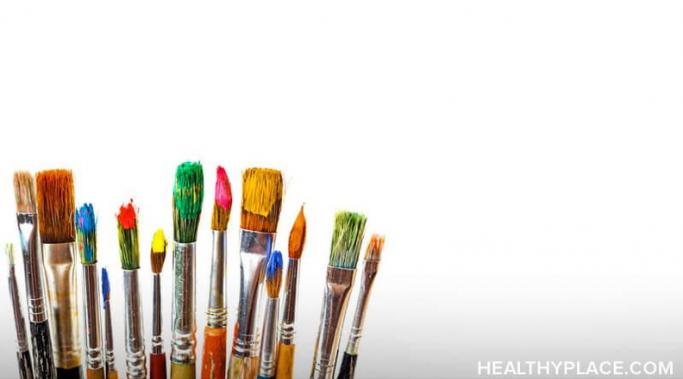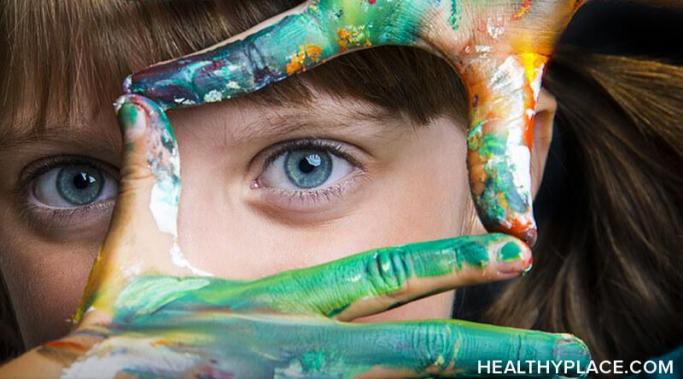I've used art to manage my mental illness. Art and tapping into creativity is an excellent source of self-therapy. When I was in intensive therapy during a difficult point of my life, I was introduced to art as therapy. I was skeptical at first, but the idea that art could help manage my mental illness and be soothing and stress-relieving opened a new door for me in my recovery.
Creativity and Mental Illness
When I had nothing but my mental health struggles, I had writing. I had no answers. I had no knowledge of how to fix or stop my pain. I only had emotions simultaneously carving out and bursting from my aching chest, so I tried to put them into words. In doing so, without knowing it, I was writing my way to recovery.
Reading has always been a great source of comfort for me, and throughout my healing journey, I've read many books about mental illness and recovery. Some were boring, others just didn't feel aligned with me and my struggle, but some were absolutely amazing. Today I want to highlight those amazing books in the hopes that they can also help guide you through your recovery.
Making time for self-care is necessary, although it has never been at the top of my list of priorities. I'm a wife and mom, I run my own small business, and I'm often so consumed by things like potty training or launching a new product that taking time for self-care sounds ridiculous. Why would I take the time to do my skincare routine at night when I could get an extra three minutes of sleep? Why would I exercise for half an hour when I could be using that time to catch up on emails? For a long time, self-care has lived at the bottom of my to-do list, constantly shuffled around and ignored.
At the beginning of 2021, I started a new form of self-care: using tarot cards for recovery. Specifically, I am learning how to read tarot cards to help me heal from the effects of childhood trauma. I don't necessarily believe that tarot cards can tell the future, but I do believe that interpreting tarot cards requires a strong sense of intuition, and that's what I hope to build by using tarot cards for recovery.
I've come up with many different mantras for recovery in the past few years, and even though it might feel like they're just words, I've noticed that they actually make a huge difference in how I feel about myself and my recovery journey. Today I want to share some of those mantras with you, and I hope at least one of them strikes a chord with you. If you find one you like, try repeating it to yourself any time your recovery is challenged, or even just when you get up in the morning and go to bed at night. These mantras for recovery are now yours; use them however you need.
I've never really thought that feeling numb was a problem for me. I've always had issues with feeling too much. Even when I'm depressed, I don't usually relate to the emptiness that many others describe. Even my depression is full of emotions, from self-loathing to existential dread. But over the last few years, I have learned to cope with my depression better and better, so when those depressive emotions resurface, I panic and try to shove them away. Which is why, after years of depression and anxiety, I am just now starting to experience numbness.
I am a big believer in the idea that writing can help with recovery from mental illness. I am a professional freelance writer now, but even before I made my living by writing, I used writing in a variety of ways to help with my recovery from mental illness.
One of the most important things I've learned throughout my recovery is that I'm not just recovering from depression and anxiety; I am recovering from negative core beliefs about myself. Now that I have my depression and anxiety managed through medication and cognitive behavioral therapy (CBT), it's time to start changing those negative core beliefs and healing from the damage they cause.
Using creative projects for mental illness recovery helps me immensely. The arts have played an integral part in my recovery from schizoaffective disorder. It all started with a five-week stay at a treatment center where I received my initial diagnosis. There was a lot of downtime at the center and I was frequently digging through their stash of art supplies. I had frightening visual hallucinations and found it very therapeutic to draw them.









